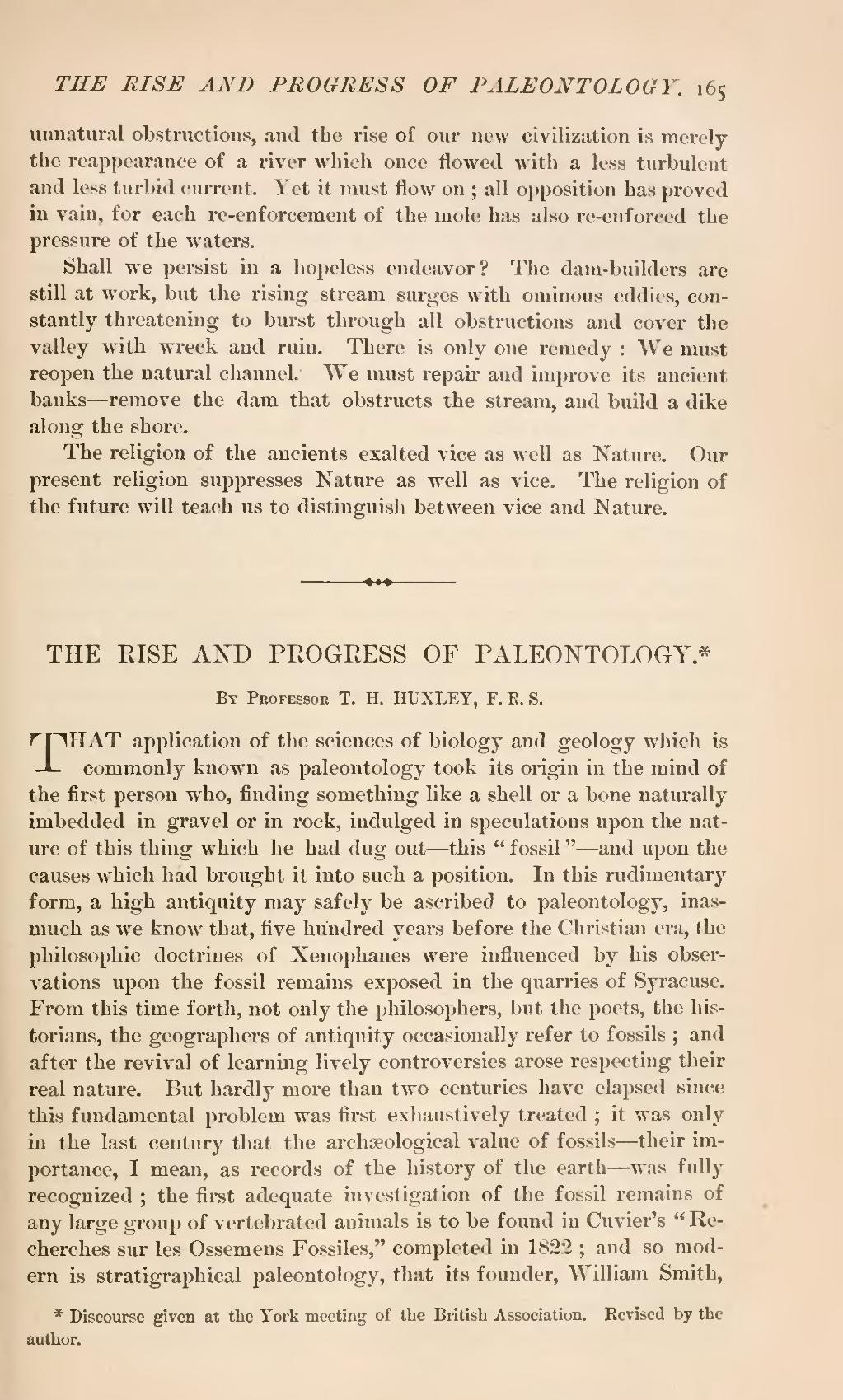unnatural obstructions, and the rise of our new civilization is merely the reappearance of a river which once flowed with a less turbulent and less turbid current. Yet it must flow on; all opposition bas proved in vain, for each re-enforcement of the mole has also re-enforced the pressure of the waters.
Shall we persist in a hopeless endeavor? The dam-builders are still at work, but the rising stream surges with ominous eddies, constantly threatening to burst through all obstructions and cover the valley with wreck and ruin. There is only one remedy: We must reopen the natural channel. We must repair and improve its ancient banks—remove the dam that obstructs the stream, and build a dike along the shore.
The religion of the ancients exalted vice as well as Nature. Our present religion suppresses Nature as well as vice. The religion of the future will teach us to distinguish between vice and Nature.
| THE RISE AND PROGRESS OF PALEONTOLOGY.[1] |
By Professor T. H. HUXLEY, F. R. S.
THAT application of the sciences of biology and geology which is commonly known as paleontology took its origin in the mind of the first person who, finding something like a shell or a bone naturally imbedded in gravel or in rock, indulged in speculations upon the nature of this thing which he had dug out—this "fossil"—and upon the causes which had brought it into such a position. In this rudimentary form, a high antiquity may safely be ascribed to paleontology, inasmuch as we know that, five hundred years before the Christian era, the philosophic doctrines of Xenophanes were influenced by his observations upon the fossil remains exposed in the quarries of Syracuse. From this time forth, not only the philosophers, but the poets, the historians, the geographers of antiquity occasionally refer to fossils; and after the revival of learning lively controversies arose respecting their real nature. But hardly more than two centuries have elapsed since this fundamental problem was first exhaustively treated; it was only in the last century that the archæological value of fossils—their importance, I mean, as records of the history of the earth—was fully recognized; the first adequate investigation of the fossil remains of any large group of vertebrated animals is to be found in Cuvier's "Recherches sur les Ossemens Fossiles," completed in 1822; and so modern is stratigraphical paleontology, that its founder, William Smith,
- ↑ Discourse given at the York meeting of the British Association. Revised by the author.
